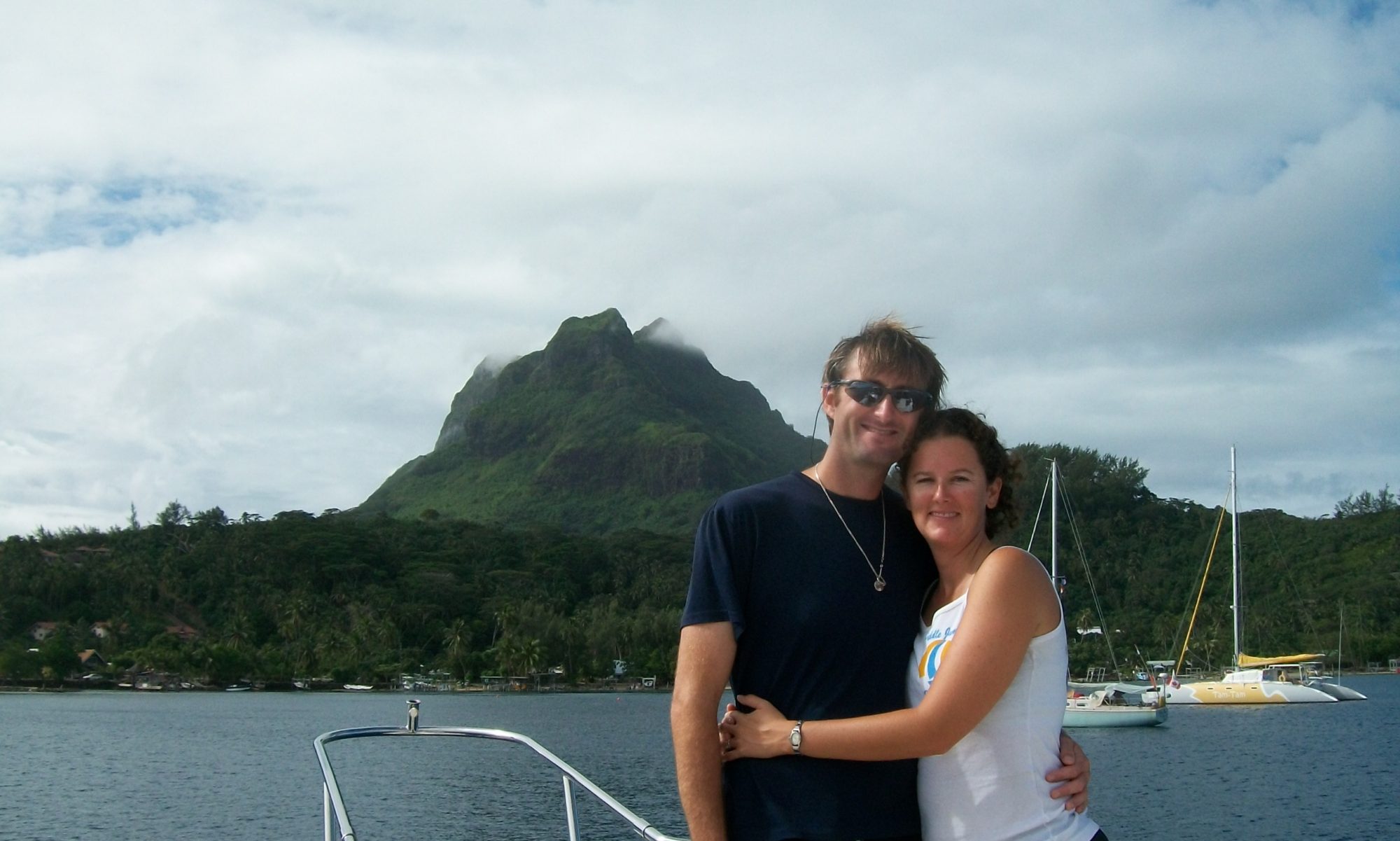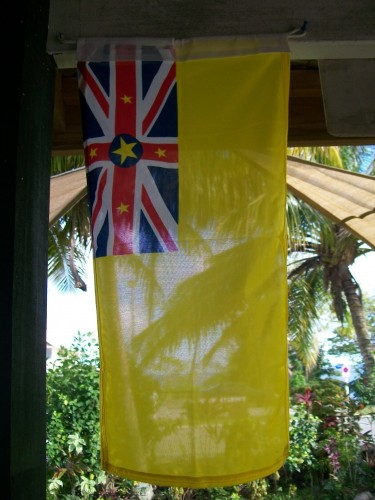Alofi, Niue
Notice anything different about the description of where we are? Normally we give you the city, the island and the country. In Niue though, the island IS the country. With a total number of 1 island and a total population of approximately 1300 citizens in country at any one time, this island-nation is a very different experience from the other countries we have visited so far. There are more Niueans in the main New Zealand city of Auckland than there are in Niue. It’s actually kind of funny because the Miss Niue beauty pageant is actually held in Auckland and broadcast live over the internet & TV back to the home country.
This isn’t too surprising being as all Niueans are dual citizens of New Zealand, there are only so many jobs a nation of 1300 people can support, and finally, Niue, along with The Cook Islands and quite a few other island chains out here are all protectorates of New Zealand. This basically means that, though the Kiwis play it down a lot, the tiny little country of New Zealand is a major regional power player in the South Pacific. It’s basically France, the USA and NZ that own something like 80% of the islands out here. Which is really impressive that:
1) The Kiwis can maintain a regional empire across the Pacific Ocean and
2) No one sees them as the imperialists that France and the US get painted to be. Because you know if the US took an island chain as a “protectorate” we’d be imperialist dictators but if New Zealand does it, no one seems to notice or mind. Doesn’t make sense, but that’s the way of it. To be fair, the Kiwis are really nice people.
Western expansionism aside, “the rock of Polynesia” as the locals call it, is fundamentally different than any other island we have visited so far. You see Niue isn’t sinking. Instead it is actually slowly rising out of the sea.
Which is really great and interesting and all until you want to get onto the island and you end up staring up an 18 meter wall of solid rock where the beach to land your dingy should be. Since the 100 or so recreational cruising ships that visit each year represent approximately 27% of their annual tourism, the locals have come up with a rather ingenious solution to the problem: they can’t lower the land to the dingy they raise the dinghies to the land.
And yes, in case you missed it, the 200-600 people who visit their country by boat represent about a quarter of their total yearly tourism. If you’re looking for an unspoiled quiet and remote South Pacific island, this is basically it.
Like this article? For more about exploring remote Polynesian communities check out our time on the island of Toau (population 3) by clicking on “And you thought the other village was small…”
And for more about the history of European colonization of the South Pacific click on “Next Stop: Taiohae Bay, Nuku Hiva, French Polynesia”
About the authors
Greg and Tiffany are travelling around the world on sailing yachts and keep a video blog of their (mis)adventures. If sailing to Tahiti on a 44 ft sailboat, getting pooped on by seagulls, opening coconuts with dull machetes, sailing past tornadoes and ukulele Christmas carols are for you, then check them out at www.CoastGuardCouple.com!



Great blog, but a couple of inaccuracies. New Zealanders are reluctant “Imperialists” of the three Pacific countries Niue, Cook Islands and the Tokelau group only. They were dumped onto NZ around the turn of the last century by Britain and have suffered the expense of looking after these three countries ever since. None of these countries is “owned” by New Zealand in the same way as French Polynesia is by France. They are no longer colonies. Niue and the Cooks are sovereign nations in free association with NZ. Tokelau is still a full dependency due to choice. To help you understand the relationships, here is an up-to-date article from NZ Aid: http://www.aid.govt.nz/programmes/Joint%20Commitment%20for%20Development%20Niue.pdf
Mark,
Thanks for the link. THe relationship New Zealand has with its sponsored islands is very interesting. I am aware that New Zealand spends a great deal of money supporting these countries with little return. The point in my blog was that
1) it’s impressive that such a small country as New Zealand can maintain that level of support.
2) The US (I will leave France out of this being as I am not French) also spends a lot of money on its South Pacific Islands (Guam & Am Samoa, along with some other ally island nations) and also allows them a great deal of autonmy (for example, we offered Puerto Rico the option to become a full state, they voted to remain a territory). However the US is often paited as “imperialist empire builders” while the Kiwis are seen as a “Helpful sponsor country.”
We as Americans could learn something from the Kiwis on how to sponsor developing nations while not looking like evil dictatiors in the world’s view.